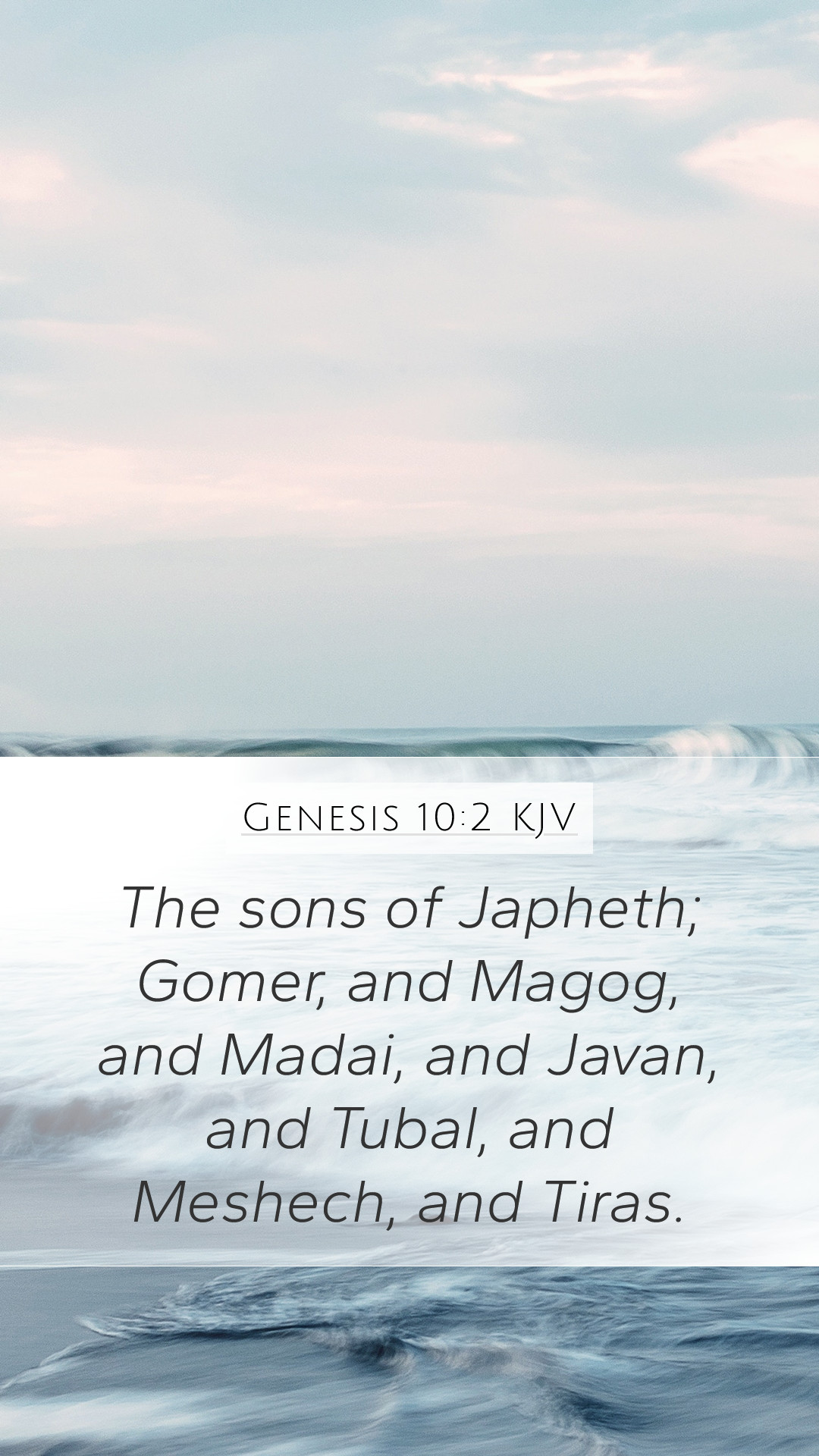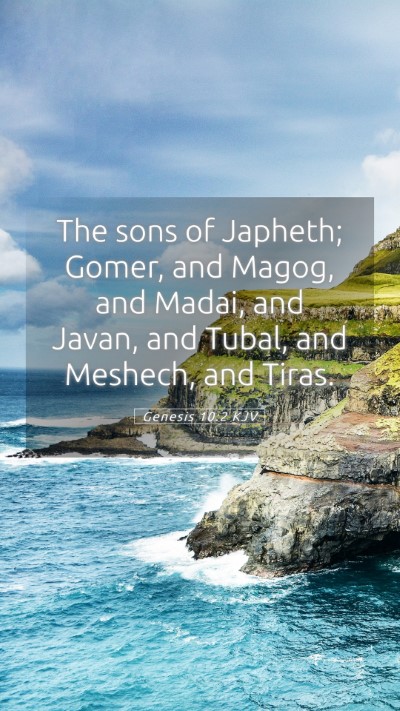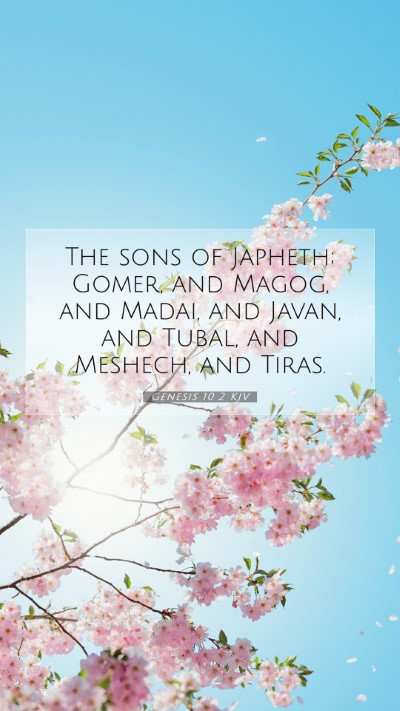Understanding Genesis 10:2
Genesis 10:2 states:
"The sons of Japheth were Gomer, Magog, Madai, Javan, Tubal, Meshech, and Tiras."
This verse is part of the genealogical account in the Book of Genesis, which outlines the descendants of Noah after the flood. The verse specifically mentions the sons of Japheth, one of Noah's three sons. Below is an interpretation of this verse synthesized from various public domain commentaries.
Bible Verse Interpretations
The genealogy found in Genesis 10 serves a few purposes:
- Historical Context: Understanding the lineages helps trace the origins of various nations and peoples in the ancient world.
- Divine Purpose: The listing of names reflects God’s plan for humanity post-Flood, showcasing the repopulation and distribution of nations.
- Symbolic Representation: Each name and lineage may carry symbolic meanings and characteristics that relate to the cultures and nations they represent.
Commentary Insights
Matthew Henry's Commentary: Henry emphasizes that genealogies in the Bible serve to establish the continuity of God’s covenant through generations. The descendants of Japheth are particularly associated with the spread of cultures and civilizations across Europe and Asia.
Albert Barnes' Notes: Barnes comments on the names listed as indicative of nations that would arise from Japheth. He highlights how these names connect to historical nations such as the Greeks and Medes, enriching our understanding of biblical geography and history.
Adam Clarke's Commentary: Clarke provides a deeper analysis of the meanings of the names mentioned. He suggests that each name corresponds to specific tribes or regions and discusses the etymology of these names, indicating their importance in the unfolding narrative of humankind from a biblical perspective.
Meaning of Bible Verses
Genesis 10:2 signifies not just a list of names, but a historical and spiritual lineage that reminds believers of God's providential care in the establishment and spread of nations. The verse reflects:
- God’s Sovereignty: His ability to fulfill His promise to Noah, ensuring humanity's preservation and expansion.
- Cultural Diversity: The different nations and cultures that emerge from a common ancestor reflect God's diversity in creation.
- Human Responsibility: As descendants of Noah, the obligation to honor God in worship and morality continues to be a focal point.
In-Depth Biblical Exegesis
In biblical exegesis, it’s essential to explore the cultural and historical backdrop against which Genesis 10:2 was written. The unfolding narrative depicts a world that is repopulating after a significant divine intervention—the flood. Each son of Japheth signifies different aspects of the human experience and the interconnections among nations:
- Gomer: Often associated with the Cimmerians, representing the rise of nations in the north.
- Magog: Linked to Gog and the prophecy in Ezekiel, symbolizing future events and humanity’s ultimate rebellion.
- Madai: Identified with the Medes, suggesting the foundations of the Persian Empire.
- Javan: Associated with the Greeks, denoting the spread of Hellenistic culture.
- Tubal and Meshech: Connected to regions in modern Turkey and surrounding areas, indicative of the tribes that would influence various cultural shifts.
- Tiras: Often associated with trade and maritime ventures, indicative of commercial exploration.
Applying Bible Verses to Daily Life
Understanding Genesis 10:2 can be guided by its implications for believers today:
- Cultural Appreciation: Recognizing the rich tapestry of human cultures can enhance appreciation for diverse traditions and histories.
- Faithfulness to God’s Designs: Just as God sustained and divided nations, believers are reminded to seek His guidance in their own cultures and communities.
- Unity Amidst Diversity: The origins from a common ancestor invite believers to foster unity in the body of Christ, transcending cultural divisions.
Related Bible Cross References
- Genesis 9:18-19: The significance of Noah's sons and their roles in repopulating the earth.
- Ezekiel 38:2: Prophecy relating to the descendants of Magog.
- 1 Chronicles 1:5-7: Parallel genealogies confirming the lineage of Japheth's progeny.
Conclusion
Genesis 10:2 is a foundational verse that opens a window into the early post-Flood world. By studying the verses, one gains insights into biblical history, the establishment of nations, and God's overarching sovereignty over humanity. Engaging deeply with such passages enhances overall bible verse understanding and enriches the Bible study insights for personal and communal growth.


